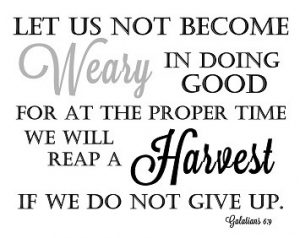Earlier this week, I received an urgent message from a student asking me to call her ASAP. A number of concerns came to mind as I pondered what may have been her state of emergency.
As soon as I was able to call the student back, she immediately asked if it was too late to drop her current class. Before I answered, I grew eager to know why she needed to drop her class, especially considering this was her very last class and she was scheduled to graduate in a few weeks. If she dropped this course, it would change her completion date. All I kept pondering was: “What was going on with her?”
When I asked the student what was wrong, she said: “This class is too much and I am tired and need a break.” She recognized that dropping the class would mean she no longer qualified for December’s graduation, but in that moment, she did not care. She wanted and needed to take a break.
Because I once found myself feeling the same way when I was taking classes, my response to her was quite clear. To her I said: “You are burned out. That is what is wrong with you. I know what exhaustion feels and looks like, because almost four years ago, I was in the same position. I was in my very last graduate class and just could not find the strength to see the end through. As your fellow sister in Christ, I cannot and will not let you drop this class. You have come too far to give up now. You will be fine. You WILL finish this class and finish strong. After you are done, then you can take all the time you need.”
This situation reminded me of when my brother ran track in high school. As I watched him run long-distance, I noticed that most of the runners began the race further back than others. This was interesting to me. As the race continued, my brother would move up a little towards the middle lanes. Then as time went by and he realized that he only had a few more laps to run, my brother would suddenly take off and sprint as he took the lead over the other runners. Nervously, I sat in uncertainty wondering if he would win the race or would someone beat him. To my disappointment, as he made his last few laps, my brother seemed to have just lost wind and given up, because before I realized it, the other runners had bypassed him and he eventually gave out, coming in last place. What started out promising ended in conquest.
Oftentimes, we as believers find ourselves right at the end of a race, but then, we quit. God wants us to understand that the Christian race is one that has to be run until the end. Paul, in 1 Corinthians, writes, “Do you not know that those who run in a race all run, but one receives the prize? Run in such a way that you may obtain it” (1 Corinthians 9:24). This was Paul’s farewell address to the Church at Ephesus and he said, “But none of these things move me; nor do I count my life dear to myself, so that I may finish my race with joy . . . ” (Acts 20:24).
So, just as I attempted to convey to the student the other day, as God’s children, we must keep running the race to win the prize. The iniquity is not in getting tired while running the race; rather, it is in giving up.
*I know you are wondering, so………THE STUDENT DECIDED TO KEEP RUNNING HER RACE AND TO NOT DROP THE CLASS. Praise God!!!!



